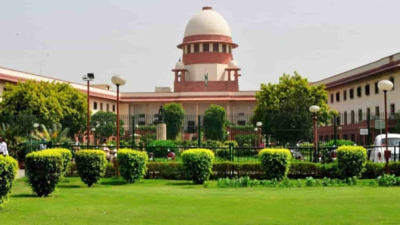ARTICLE AD BOX

Amid a clamour for legislative revamp of the judges-selecting-judges system, fuelled by Vice-President Jagdeep Dhankhar's statements, CJI B R Gavai has said no reform in the collegium system could be at the "cost of judicial independence" and that judiciary should retain its primacy in appointments to Supreme Court and high courts.At a round-table in UK Supreme Court on Tuesday evening, CJI Gavai said, "There may be criticism of the collegium system, but... judges must be free from external control."CJI said SC had struck down National Judicial Appointments Commission Act in 2015 as the law attempted to dilute judiciary's independence by giving primacy to the executive in court appointments.Unwarranted interference led to collegium system, says CJI Tracing the evolution of the collegium system through two SC judgments in 1993 and 1998, the CJI said the executive had the final say in appointment of judges to Supreme Court and HCs till 1993 and that system saw two senior-most judges of SC getting superseded in the appointment of CJIs (both by the govt headed by Indira Gandhi) in breach of established traditions.He said the collegium system evolved as judiciary's response to the executive's excesses and unwarranted interference in appointments to constitutional courts.As per the two judgments concerned, the collegium was to act in unanimity and its decision was to be final, Justice Gavai said, adding that this "sought to ensure independence of judiciary, reduce executive interference and maintain judiciary's autonomy in its appointments".
Quoting B R Ambedkar's words - "our judiciary must both be independent of the executive and must also be competent in itself" - the CJI said the fact that constitutional courts drew salaries from the Consolidated Fund of India made judges independent of the executive.Referring to Kesavananda Bharati judgment of 1973 that propounded the basic structure doctrine by a 13-judge bench through seven to six majority, CJI Gavai said, "This ruling established a significant judicial precedent, affirming that certain fundamental principles, such as democracy, rule of law, and the separation of powers, are inviolable and cannot be altered."



.png)
.png)
.png)
















 1 day ago
6
1 day ago
6









 English (US) ·
English (US) ·